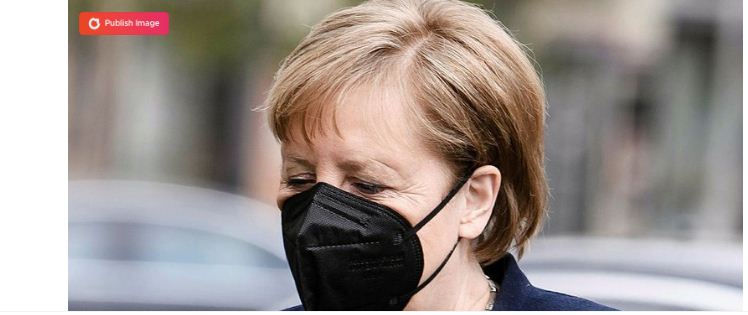BERLIN – German Chancellor Angela Merkel expressed concern over Russia for the military buildup on the border with Ukraine and health condition of opposition figure Alexey Navalny, saying Europe was “extremely worried” about both situations but had a common agreement to deal with such conflicts.
Addressing the Parliamentary Assembly of the Council of Europe on Tuesday, Merkel defended Germany and Europe’s response over conflicts with Russia, saying the bloc has a common approach to tackle issues with the Kremlin.
“We do have common sanctions when it comes to Navalny as well as the annexation of Crimea [by Russia] and the occupation, or the [pro-Russian] separatists of Donetsk and Luhansk. We have a European agreement on that level and we have a common approach to Russia.”
Merkel pointed out that in the Navalny case the judgment of the European Court of Human Rights holding his detention as “unjustified and arbitrary” and calling for his release was important. “Right now we are extremely worried about Navalny, and the German government, along with others, is doing everything it can to make sure he receives appropriate medical care,” she said.
Conflicts like in the case of Ukraine and the annexation of Crimea make relations with Russia “particularly difficult,” noted Merkel, adding: “We have to keep a chance of dialogue open.”
The European countries were working together and supporting one another, as Germany and France set up a continuous mechanism under the Minsk format on the Ukraine crisis, she said.
“[French President Emmanuel] Macron and myself spoke to [Russian President Vladimir] Putin and [Ukrainian President Volodymyr] Zelensky recently, because the situation is very worrying and tense because of the concentration of forces on the Russian side of the Ukrainian border,” Merkel added, responding to a question by Polish lawmaker Aleksander Pociej on the EU’s relations and Germany’s ambiguous position with Russia.
Germany is the biggest consumer of Russia’s natural gas and has continued to back the controversial Nord Stream 2 pipeline, designed to carry the gas avoiding the main overland routes across eastern Europe. Despite opposition from certain European countries and the US threatening penalties on the project, Berlin has rejected calls to halt the construction of the pipeline amid rising tensions between Russia and Ukraine.
Merkel expressed hope that Nord Stream 2 will not result in a conflict because of Germany’s wish to trade with Russia.
The session witnessed high drama as Ukrainian lawmaker Oleskii Goncharenko took to the floor twice, first, asking Merkel: “I want to have a simple answer, with yes or no. Is Putin a murderer?”
He also unfurled a Ukraine flag marked with blood and gunshots, much to the annoyance and dismay of the chair, as he sought to remind the parliamentarians on the Ukraine conflict, and territorial integrity, and sovereignty of member states, saying: “It’s from our men fighting for freedom and independence of Ukraine.”
Unlike US President Joe Biden’s words branding the Russian president as “a killer,” Merkel answered diplomatically. “When it comes to Mr. Putin, let me put in my own words. If you are expressing criticism then I am going to make no bones about the fact that I engage with these issues in personal conversations. I have raised human rights issues, certainly, I have singled out the issue of Alexey Navalny, but I could have homed in all kinds of human rights issues when it comes to Russia.”

















